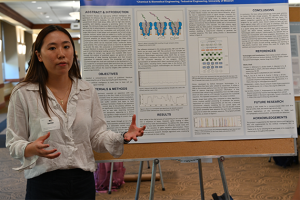
Aug. 1, 2023
REU: Undergraduates explore materials science across engineering disciplines
Students participating in a materials science-focused summer program have spent nine weeks at Mizzou Engineering getting hands on research experience.
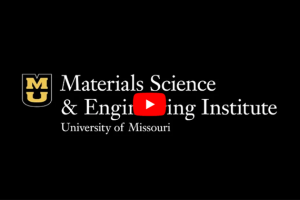
May 15, 2023
On anniversary, MU Materials Science & Engineering Institute celebrates success
Since opening a year ago, the MU Materials Science & Engineering Institute (MUMSEI) has had a lot of tangible successes.

April 26, 2023
Mizzou Engineering students take honors at Show Me Research Week
Six engineering students took honors at Show Me Research Week on campus last week. Show Me Research Week, a collaboration between the Office of Undergraduate Research and the Bond Life Sciences Center, included poster presentations, guest lectures and special activities. More than 55 engineering students presented.
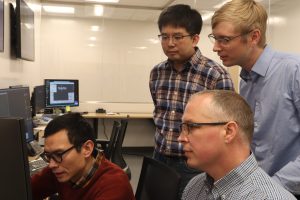
March 22, 2023
A new view of microscopic processes
With the support of a two-year, $800,000 grant from the National Science Foundation and an additional $300,000 from the university, Matt Maschmann and a team of researchers are purchasing new equipment which will allow researchers to conduct scientific experiments while simultaneously viewing reactions as they happen in real time.
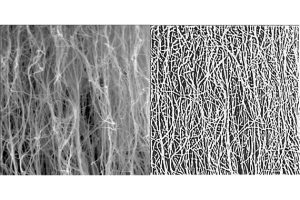
March 15, 2023
Team develops technique to segment carbon nanotube forests in images
Mizzou Engineering researchers are another step closer to controlling the properties of carbon nanotubes growing in mass quantities.
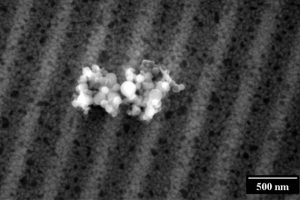
Jan. 26, 2023
Mizzou researchers provide direct evidence of localized explosion of aluminum nanoparticle
A Mizzou Engineering team has provided direct evidence of a localized explosion of an aluminum nanoparticle, a mechanism first theorized in 2006.
Aug. 8, 2022
Mizzou Engineers develop new method to design semiconductors
A new way to make semiconductors:Topology (A) and phase (B) imagery of the functionalized zone after zinc oxide atomic layer deposition. Mizzou Engineers have come up with a novel new technique to design semiconductors, the chips that make your phones, laptops and other devices not only smart, but also compact. Matthias Young and Matt Maschmann outlined a proof of concept for their technique in a recent issue of Nano Select and worked with the Technology Advancement Office to file an application to patent the work. Now, they’re hoping to scale up and optimize the process to make…
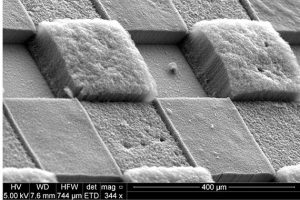
Aug. 4, 2022
Research at Mizzou could help reduce cost to build particle accelerators
If Mizzou Engineers are successful, that price tag of particle accelerators such as the Large Hadron Collider could drop drastically.
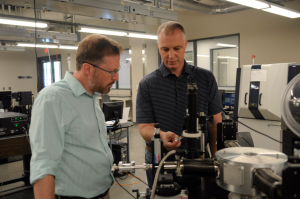
May 17, 2022
How to build an ‘explainable AI’ framework to speed up the innovation process
A nearly $4.9 million grant from the U.S. Army Engineer Research and Development Center (ERDC) is supporting the project by University of Missouri engineers.
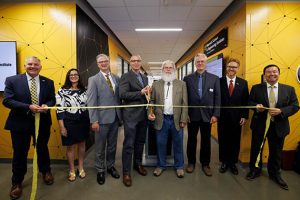
May 13, 2022
Mizzou celebrates opening of MU Materials Science & Engineering Institute
A new institute at Mizzou will advance collaboration around materials research and education across campus. University and College leaders celebrated the grand opening of the MU Materials Science & Engineering Institute (MUMSEI) at a symposium and ribbon cutting event on Friday.
- « Previous
- 1
- 2
- 3
- Next »